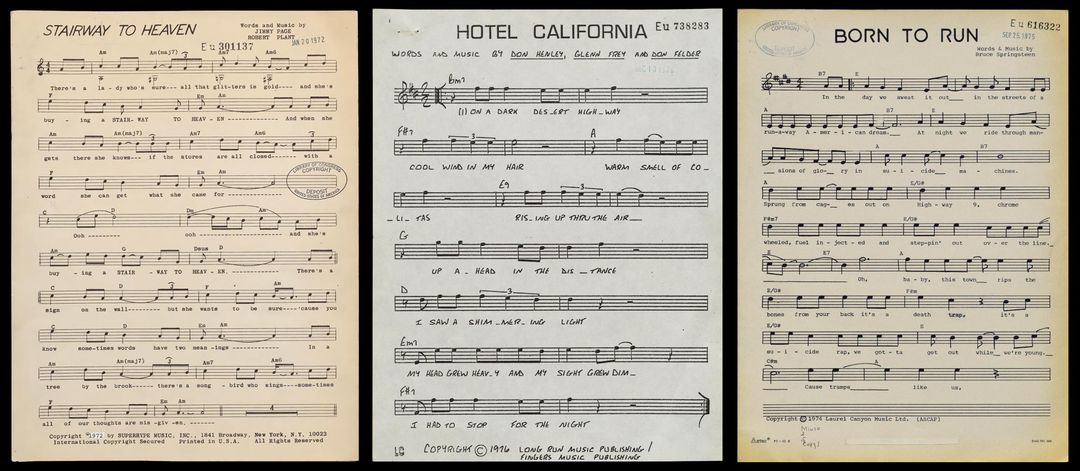Why the lamest looking ‘rock and roll’ lawsuit in history is also the most important [op-ed]
![Why the lamest looking ‘rock and roll’ lawsuit in history is also the most important [op-ed]](https://images.thebrag.com/cdn-cgi/image/fit=cover,width=1200,height=800,format=auto/https://images-r2-1.thebrag.com/tmn/uploads/Led-Zeppelin.jpg)
This week an important point of music law is being argued in front of an 11-judge panel in San Francisco – and it all centres around the opening guitar riff from ‘Stairway To Heaven’.
Now, if you aren’t familiar with this long-running legal saga, take a listen to ‘Taurus’, a rather lovely 1967 instrumental by Los Angeles band Spirit written by a guy named Randy California because that’s what guys in 1967 were calling themselves. In particular, listen to the guitar part that creeps out of the synth mist around 45 seconds in.
I assume you are familiar with ‘Stairway To Heaven’, but why not take a refresher? You’ve got eight minutes, right?
Now, it’s clear there are similarities. But that’s not what today’s hearing is about. Not really. It’s not about whether or not Jimmy Page had heard ‘Taurus’ before he wrote ‘Stairway’ either – he most likely had, given that Zeppelin’s first U.S tour was as the opening act for Spirit.
No, today’s 11-strong judging panel are discussing the manner in which Spirit’s record company filed their paperwork with the U.S. Copyright Office…
At this point, you’d be forgiven for thinking this might just be the lamest ‘rock and roll’ lawsuit in history. It certainly sounds that way.
But if Led Zeppelin wins this case, a host of classic rock riffs, including some of their own, are actually in danger of being stolen by other musicians. That’s pretty rock and roll, right?
Before 1978, in order to copyright songs in the U.S, you had to submit a ‘deposit copy’ on paper to the U.S. Copyright Office. This was basically just a copy of the sheet music.
Above is an example of the one filed in 1971 for ‘Stairway To Heaven’
You could not, however, submit an actual recording of a song with the deposit copy, for boring bureaucratic reasons. This law was changed in 1978; obviously it’s better to have a sound recording of the actual song being submitted for copyright.
Throughout the ‘60s and ‘70s, many hit singles were written by teenagers, and released by provincial labels that no longer exist. Ran by first-timers. Sharks. The recording industry was nascent. In numerous cases, deposit copy paperwork was filed for now-famous songs as a matter of course. Often times it wasn’t filed at all. Large portions of what a listener might consider the essential moments of a recording – guitar riffs, basslines, sax solos, guitar solos, harmonica trills – aren’t notated at all in the copyright paperwork for many famous singles.
This leaves recordings from pre-1978 with far less effective copyright coverage than those registered 1978 or afterwards – which is a problem.
‘Taurus’, by Los Angeles band Spirit, wasn’t a hit single by any stretch. It wasn’t a single at all. It is a pretty 2:39 instrumental track released four years before ‘Stairway To Heaven’ on Spirit’s debut album. Surprisingly, it was notated more carefully than most compositions of that era, with 124 piano notes in total being put on paper by a record company employee, who transcribed the song based on the studio recording. The paperwork fails to include the guitar part they claim Jimmy Page lifted for ‘Stairway’.
Ironically, if Led Zeppelin are successful in avoiding copyright infringement, it will highlight a loophole which puts key sections from many classic rock songs at risk of being ‘stolen’ by modern day artists. A huge catalogue of riffs, bass runs, and guitar solos will able to be (legally) lifted wholesale and used however the artist pleases.
Enter: Donald Trump, whose administration is weighing into this debate. They are siding with Led Zeppelin, which sounds cool until you realise Trump is actually siding against rock. For Zeppelin but against rock. It’s a head-scratcher. A lawyer from the Department of Justice will take the stand during the band’s alloted time in order to argue that such pre-1978 paperwork does, in the majority of cases, contain the major melodic sections of the song, and therefore any “failure to incorporate elements such as these in the deposit copy would reflect a failing on the part of the copyright owner or its agent.”
Meaning that lousy paperwork filed 52 years ago by a label clerk still stands.
This potentially leaves a ton of classic riffs in the pre-1978 patheon up for grabs. An extensive Bloomberg BusinessWeek investigation by Vernon Silver identified numerous key points in rock history that don’t seem to be protected under this method of copyright reporting: the piano run that trinkles throughout The Doors’ ‘Riders On The Storm’, the triumphant sax break from Springsteen’s ‘Born To Run’, major instrumental portions from Eagles’ ‘Hotel California’ , souring sections of ‘Free Bird’ – and, yes, the guitar solo from Stairway To Heaven.
This seemingly minor legal tussle could change the way music is made. That sounds extreme, but it does throw open a catalogue of classic rock riffs, plus many other memorable musical hooks from songs recorded and registered before 1978, songs not notated thoroughly enough half a century ago to be covered by law even though many of them are still being played daily on FM stations around the world.
Why wouldn’t you plunder from rock history if you could? It will be interesting to see what is built.
Are we in for a deluge of terrible music, built off Donna Summer keyboard parts and Santana riffs, frankensteined into horrible lumbering things? Or will we see a library of copyright-free riffs used in thoughtful, interesting ways?
The hearing begins today, in the Ninth U.S. Circuit Court of Appeals, and soon we will learn just how protected these pre-1978 songs really are.
No matter the outcome, one thing is assured: we are going to hear the solo from ‘Stairway’ again. And again, and again.































